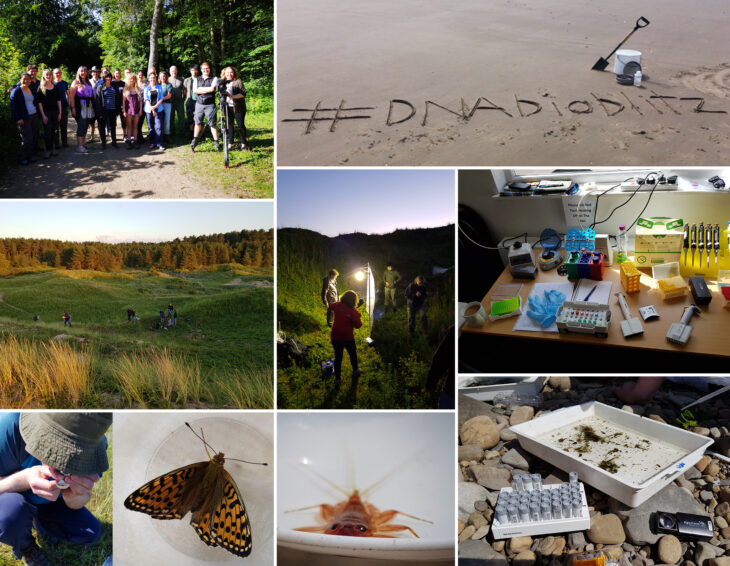Written by Lyndall Pereira da Conceicoa, Darwin Tree of Life, Natural History Museum
The Darwin Tree of Life (DToL) Project, funded by the Wellcome Trust and led by the Wellcome Sanger Institute, is an ambitious initiative working towards DNA sequencing the genomes of all eukaryote species (all life excluding Bacteria and Archaea – over 60,000) in and around the British Isles. This includes animals, plants, fungi and protists, with all DNA data released openly. This genomic resource has the potential to revolutionise work in biology, conservation and biotechnology.
The British Isles are in a unique position as they constitute one of the most well-known and studied biota in the world, discovered during centuries of observation and research. The first phase of the project (end 2019 to 2022) is a pilot dedicated to optimising methods, from sampling in the field to successfully generating 2,000 reference genomes and 10,000 DNA barcodes in the laboratory.
The biggest challenge for the next phase of the project (2022 onwards) will be collecting and identifying representatives of the remaining species, especially the tiny organisms (under 5 mm), and keeping up a steady supply for the laboratory teams to DNA sequence.
Nine other UK institutes are partnered up and collaborating with Sanger to ensure the success of the project, one of which is the Natural History Museum in London (NHM). The NHM also aims to DNA barcode every animal species of the British Isles, curating voucher specimens at the museum for morphological verification.
Verifiable and accurate taxonomic identification is vital and forms the foundation of the whole project. These DNA-based tools will add to our valued taxonomic knowledge by allowing us to link life stages of organisms (e.g. larvae and adults), link males and females for some taxa, discover cryptic species and determine species origins.
The NBN Atlas is an incredible resource and the NHM plans to use this data to help decide the feasibility of locating certain species in the British Isles. NBN Atlas records will also be used in combination with ecological data to recognise a range of biodiverse areas and highlight regions and species with few or no records. This information will help streamline sample collection for the project, including bioblitz events, run in collaboration with other partners, schemes and agencies. In this initial phase, the DToL partners are working on developing further collaborations with other institutions, agencies and recording schemes to ensure that all taxa are represented in this great scientific endeavour.
Please see the official website for more detailed information on the project: www.darwintreeoflife.org

